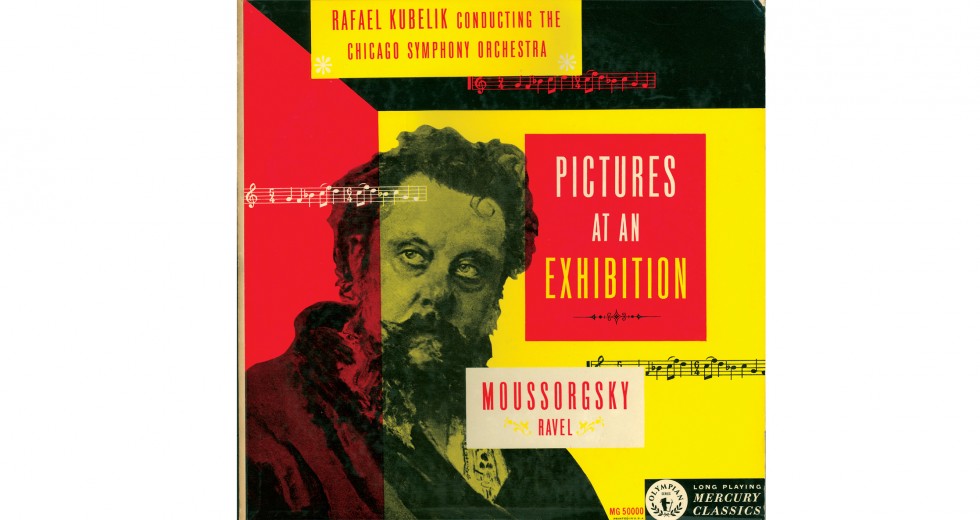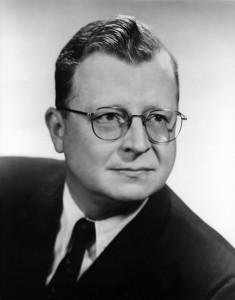
Using a single Telefunken condenser microphone—hung twenty-five feet directly above the conductor’s podium—Mercury recorded Ravel’s orchestration of Mussorgsky’s Pictures at an Exhibition on April 23, 1951, at Orchestra Hall. Rafael Kubelík, in his first season as the Chicago Symphony Orchestra’s fifth music director, conducted, and Adolph Herseth, principal trumpet since 1948, performed the opening fanfare. The recording was the inaugural release on Mercury’s Living Presence series.
In 1996, the original masters were used to transfer the recording to compact disc. In the liner notes for the Mercury rerelease, Robert C. Marsh commented that the original discs “represented the highest state of the art in monophonic recording technique. Hearing them again, some forty-five years later, one is still astonished by the degree to which they project the performers into the presence of the listener, a phenomenon noted in the early reviews by New York Times critic Howard Taubman [who originally coined the phrase ‘living presence’]. . . . Indeed, heard over multiple speaker systems there have always been passages in these recordings in which one is easily convinced that he is, in fact, listening to stereo. The balance, clarity, and texture of the music is so beautifully preserved, the dynamic range is so wide and so free of the compression often associated with monophonic records, that it is difficult to accept that all this sound comes from a monophonic source.”
The Orchestra also recorded Pictures in 1957 for RCA with Fritz Reiner conducting, in 1967 for RCA with Seiji Ozawa, in 1976 for Deutsche Grammophon with Carlo Maria Giulini, in 1980 for London Records with Sir Georg Solti, and in 1989 for Chandos with Neeme Järvi. The Reiner and Järvi versions were recorded at Orchestra Hall; Ozawa, Giulini, and Solti recorded at Medinah Temple. A performance video recorded at Suntory Hall in Tokyo on April 15, 1990—which also included an introduction with Solti performing examples at the piano and in rehearsal with the Orchestra—was released by London. On all recordings, Herseth performed the opening fanfare.
This article also appears here.
